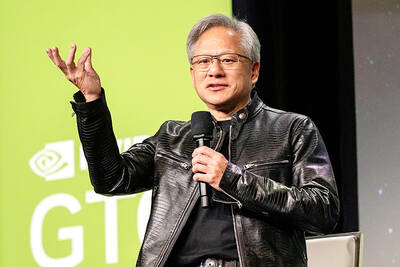The number of furloughed workers on formal unpaid leave programs in Taiwan rose over the past week, boosted by an increase in the manufacturing sector, the Ministry of Labor said yesterday.
The number of workers placed on furlough programs rose to 15,927 nationwide as of yesterday, up 981 from 14,946 on Tuesday last week, ministry data showed.
The manufacturing sector was the main contributor to the increase in the number of furloughed workers, Labor Conditions and Equal Employment Division deputy head Wang Chin-jung (王金蓉) said.
The number of furloughed workers in the manufacturing sector rose 458 to 7,389, the biggest hike among business sectors, Wang said.
The number of employers in the manufacturing sector implementing unpaid leave programs also rose by 78 to 2,133 over the past week.
The number of furloughed workers in the metal and mechanical industries rose by 387 to 3,907, Wang said.
A textile machinery maker has furloughed 60 to 300 employees at a time since September last year, before deciding to give employees an extra one to two days of unpaid leave this month, because its customers scaled back orders, Wang said.
Wang said that the number of furloughed workers in the manufacturing sector is closely related to customer orders, which have been affected by the international political and economic situation, such as the war in Ukraine.
Domestic demand-oriented sectors have been stable, including the support services sector, which primarily consists of travel agencies, and wholesale and retail businesses, Wang added.
Those industries only saw about 100 workers in small firms placed on unpaid leave over the past week, Wang said.
In the support services sector, the number of workers on unpaid leave increased to 5,329, from 5,225 a week earlier, and the number of employers implementing furlough programs rose from 1,045 to 1,061.
The number of furloughed workers in the retail and wholesale sector rose to 1,301, up 149 from a week earlier, and the number in the lodging, and food and beverage industry rose from 592 to 597.

It was late morning and steam was rising from water tanks atop the colorful, but opaque-windowed, “soapland” sex parlors in a historic Tokyo red-light district. Walking through the narrow streets, camera in hand, was Beniko — a former sex worker who is trying to capture the spirit of the area once known as Yoshiwara through photography. “People often talk about this neighborhood having a ‘bad history,’” said Beniko, who goes by her nickname. “But the truth is that through the years people have lived here, made a life here, sometimes struggled to survive. I want to share that reality.” In its mid-17th to

‘MAKE OR BREAK’: Nvidia shares remain down more than 9 percent, but investors are hoping CEO Jensen Huang’s speech can stave off fears that the sales boom is peaking Shares in Nvidia Corp’s Taiwanese suppliers mostly closed higher yesterday on hopes that the US artificial intelligence (AI) chip designer would showcase next-generation technologies at its annual AI conference slated to open later in the day. The GPU Technology Conference (GTC) in California is to feature developers, engineers, researchers, inventors and information technology professionals, and would focus on AI, computer graphics, data science, machine learning and autonomous machines. The event comes at a make-or-break moment for the firm, as it heads into the next few quarters, with Nvidia CEO Jensen Huang’s (黃仁勳) keynote speech today seen as having the ability to

NEXT GENERATION: The company also showcased automated machines, including a nursing robot called Nurabot, which is to enter service at a Taichung hospital this year Hon Hai Precision Industry Co (鴻海精密) expects server revenue to exceed its iPhone revenue within two years, with the possibility of achieving this goal as early as this year, chairman Young Liu (劉揚偉) said on Tuesday at Nvidia Corp’s annual technology conference in San Jose, California. AI would be the primary focus this year for the company, also known as Foxconn Technology Group (富士康科技集團), as rapidly advancing AI applications are driving up demand for AI servers, Liu said. The production and shipment of Nvidia’s GB200 chips and the anticipated launch of GB300 chips in the second half of the year would propel

State-run CPC Corp, Taiwan (CPC, 台灣中油) yesterday signed a letter of intent with Alaska Gasline Development Corp (AGDC), expressing an interest to buy liquefied natural gas (LNG) and invest in the latter’s Alaska LNG project, the Ministry of Economic Affairs said in a statement. Under the agreement, CPC is to participate in the project’s upstream gas investment to secure stable energy resources for Taiwan, the ministry said. The Alaska LNG project is jointly promoted by AGDC and major developer Glenfarne Group LLC, as Alaska plans to export up to 20 million tonnes of LNG annually from 2031. It involves constructing an 1,290km